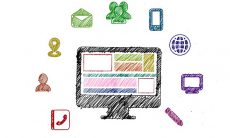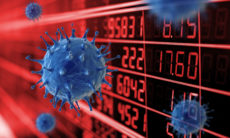Since the 1950s, artificial intelligence has been a favorite topic of scientific discourse. Now AI has become a reality: intelligent machines will change the way we work, the way we move, and even how wars will be fought. Innovators and scientists around the world believe that now is the time to make sure that AI will not overcome humans, even if studies suggest that machines could one day be more intelligent than we are.
Every day we read about AI, machine learning, and how they can shape our lives. Two years ago, Elon Musk stated on Twitter: “We need to be super careful with artificial intelligence. It is potentially more dangerous than nukes.”
For more than fifty years, artificial intelligence researchers are being focused on giving machines linguistic and mathematical-logical reasoning skills. We have started to treat the machines as if they have emotional feelings. In a more empathetic approach, we enable them to appear emotionally intelligent. They are being programmed to learn when and how to display emotion.
While Elon Musk, a hands-on engineer, is concerned with how dangerous AI can get, Facebook’s Mark Zuckerberg has a more optimistic approach. According to him, “AI is going to make our lives better in the future, and doomsday scenarios are ‘pretty irresponsible.’”
During Facebook Live stream back in July 2017, Zuckerberg tried to attempted to counter any panic over artificial intelligence and its potential. “I have pretty strong opinions on this,” he said. “I think you can build things and the world can get better. But with AI especially, I am really optimistic. And I think people who are naysayers and try to drum up these doomsday scenarios…I don’t understand it. In the next five to ten years, AI is going to deliver so many improvements in the quality of our lives,” added Zuckerberg.
But in support of Musk’s opinion, Stephen Hawking made a statement early in 2017: “The development of full artificial intelligence could spell the end of the human race….It would take off on its own, and re-design itself at an ever increasing rate. Humans, who are limited by slow biological evolution, couldn’t compete, and would be superseded.”
These different approaches of optimism versus pessimism and comfort versus discomfort create a momentum that can put us in a position to understand other periods in history in which were massive changes happened and avoid errors when adopting new developments.
Although history doesn’t exactly repeat itself, it does run in cycles. One of the most solid theories of such cycles was articulated by economic historian Carlota Perez in her book Technological Revolutions and Financial Capital: The Dynamics of Bubbles and Golden Ages. It suggests that if the world’s key decision-makers act in concert, humanity can get through the current period of upheaval and economic malaise and enter a new “golden age” of economic growth.
Currently, humanity is the most successful species. We are the masters, the programmers, the data scientists, the analysts, the strategists, and the creators and judges of the value of everything. But automation and artificial intelligence are changing things fast.







